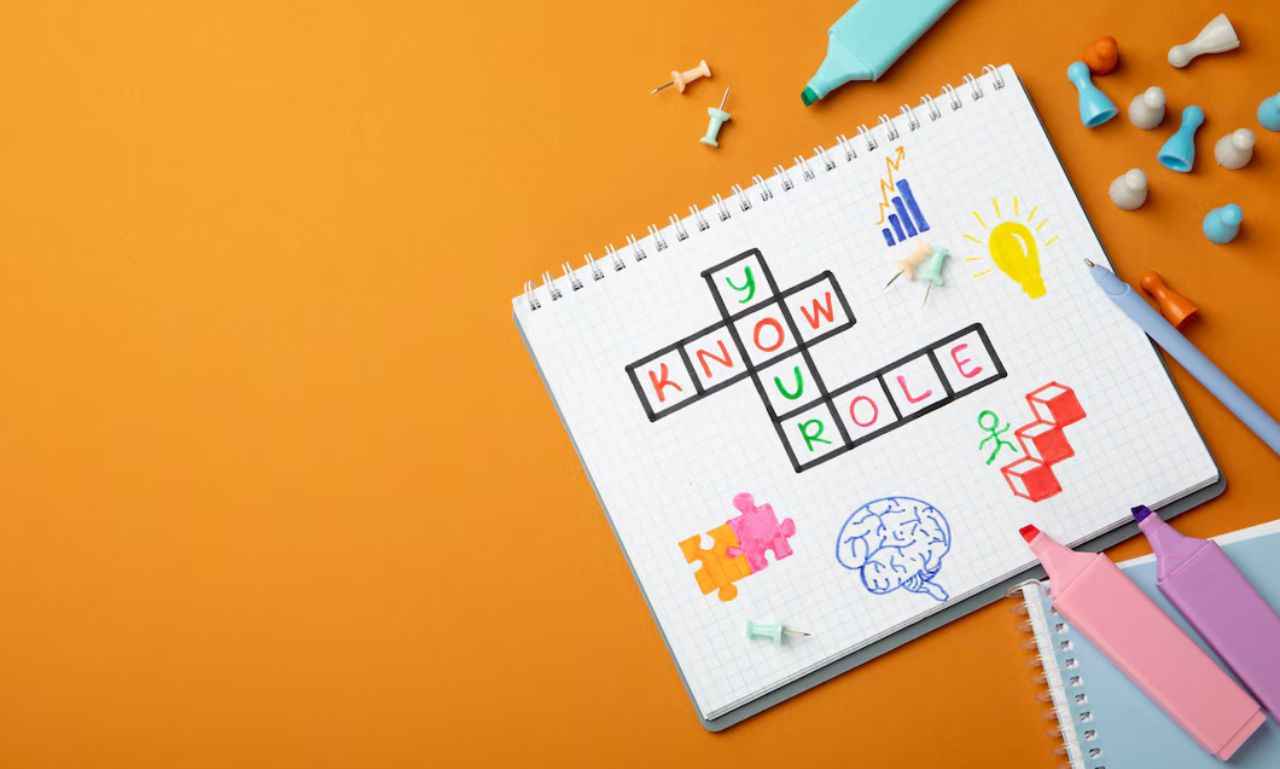Mastering the Statesman NYT Crossword: Tips, History, and Strategies for Success”

Crossword puzzles have long been a staple of brain exercise, offering a perfect blend of fun and mental stimulation. Among these, the NYT Crossword holds a prestigious place, known for its challenging clues and intricate wordplay. One variation, the Statesman NYT Crossword, has gained significant traction in recent years, appealing to both seasoned solvers and newcomers alike. With its unique twist on the classic format, the Statesman version has become a key player in today’s puzzle community, further solidifying the NYT Crossword‘s role in modern puzzle culture. This article delves into the allure of this specific crossword and what makes it so popular.
What is the Statesman NYT Crossword?
The Statesman NYT Crossword is a specialized version of the New York Times Crossword puzzle tailored for readers of The Statesman newspaper. While maintaining the same level of complexity as the NYT version, it incorporates local references and clues relevant to regional knowledge. The puzzle follows the typical NYT format, with increasing difficulty from Monday to Saturday, but with a local twist that appeals to its audience. Available both in print and digitally through The Statesman’s website, it provides solvers an interactive platform to engage with daily puzzles, combining intellectual challenge with cultural relevance.
History of the NYT Crossword
The New York Times Crossword has a rich history, beginning in 1942 when it was introduced by Margaret Farrar, the paper’s puzzle editor. Originally published in the Sunday Magazine, the puzzle gained quick popularity for its engaging design and challenge. Over time, it evolved with more complex themes and clues. Will Shortz, who became the crossword editor in 1993, played a pivotal role in its transformation, introducing new formats and expanding its reach. The puzzle’s online debut in the late 1990s and later inclusion in mobile apps made it accessible to millions, solidifying its place as a symbol of intellectual achievement.
If you’re looking for a useful tool for improving your search engine rankings, check out our article on SumoSearch, which provides innovative solutions
How the Statesman NYT Crossword Works?
The Statesman NYT Crossword follows a structured format similar to the traditional New York Times Crossword but with a few distinctive characteristics that make it unique. Like its counterpart, it consists of a grid of black and white squares, with clues designed to fill in the white squares with letters, forming words both across and down. The challenge lies in deciphering the clues, which range from straightforward to cryptic.
One key feature of the Statesman NYT Crossword is its daily progression of difficulty levels. The difficulty increases throughout the week, starting with the easiest on Monday and progressing to the most difficult on Sunday. Each day’s puzzle is designed with specific skill levels in mind:
- Monday: Simple, straightforward clues that are great for beginners.
- Tuesday to Thursday: More complex puzzles with some tricky clues that start to challenge solvers.
- Friday: A much harder puzzle, where solvers can expect more wordplay and less direct clues.
- Saturday: The toughest puzzle, often requiring deep knowledge of wordplay, obscure references, and challenging themes.
- Sunday: A large-scale puzzle that combines difficulty with more intricate themes and longer clues, often spanning a larger grid.
What sets the Statesman NYT Crossword apart is its local relevance. While it keeps the traditional NYT style, it may incorporate regional knowledge or references, adding a local flair to the puzzle. Additionally, it’s optimized for both print and online platforms, making it easily accessible for solvers to engage with, whether at home or on the go.
For those exploring the world of AI in business, learn more about CaveDuck AI and how it can elevate your company’s operations
Strategies to Solve the Statesman NYT Crossword
Solving the Statesman NYT Crossword can be both fun and challenging, depending on your experience level. Here are some tips and strategies to improve your problem-solving skills:
Tips for Beginners:
- Start with the Easy Clues: Begin by filling in the shorter, simpler clues. These are usually easier to figure out and will help you gain confidence and momentum. Focus on Monday puzzles for a more relaxed start.
- Use Crosses to Your Advantage: Crossword puzzles are all about connections. As you fill in answers, cross-referencing with intersecting words can often help you figure out tricky clues.
- Don’t Be Afraid to Guess: If you’re stuck on a clue, don’t hesitate to make a guess. It’s often better to guess and move forward than to get too bogged down on one word.
- Look for Patterns: In many crosswords, clues involve repeated patterns or common phrases. For example, common endings like “-ing,” “-ed,” or “-er” can help you identify possible answers.
Advanced Strategies for Experienced Solvers:
- Master Wordplay and Puns: As you move to the more difficult puzzles, expect tricky clues involving wordplay, puns, or references to pop culture. Understanding the types of clues (cryptic, anagrams, homophones) can give you a major edge.
- Think Outside the Box: Sunday puzzles, in particular, often have complex themes. Don’t just rely on straightforward definitions; think about how the clues may relate to each other thematically or conceptually.
- Practice Speed and Accuracy: Advanced solvers often work to increase both speed and accuracy. Try solving in a timed format to push your abilities.
Tools and Resources:
- Crossword Solver Apps: Use apps like OneLook or WordFinder to find possible answers based on known letters.
- Online Crossword Dictionaries: Resources like XWord Info offer puzzle databases, clues archives, and helpful hints.
- Crossword Forums and Communities: Engage with other solvers in online forums like R/Crossword on Reddit to discuss tricky puzzles and share strategies.
Common Challenges Solvers Face
Solving the Statesman NYT Crossword can be incredibly rewarding, but it comes with its own set of challenges that both beginners and seasoned solvers often encounter.
Tough Clues and Complex Wordplay:
One of the biggest hurdles is dealing with tough clues that require deep thinking or extensive knowledge of wordplay. Cryptic clues, puns, and indirect references are common in higher-level puzzles, and these can be frustrating for solvers who aren’t familiar with such types of clues. As the week progresses, the puzzles become more complex, especially Saturday and Sunday crosswords, which can demand creative and lateral thinking.
Misconceptions About Solving NYT Crosswords:
A common misconception is that only the most educated or expert solvers can succeed. However, this isn’t true. Crossword solving is a skill that improves over time, and anyone can get better with practice. Another misconception is that it’s necessary to complete the puzzle in one sitting. Many experienced solvers work through the puzzle over several sessions, focusing on different sections at a time.
Solutions:
- Patience is Key: If you’re stuck on a clue, take a break and come back later. Sometimes, a fresh perspective helps.
- Use Resources: Don’t be afraid to use crossword apps or dictionaries to help you out, especially if you’re just starting.
- Learn the Patterns: As you solve more puzzles, you’ll start recognizing common wordplay and clue formats.
Benefits of Solving the Statesman NYT Crossword
Solving the Statesman NYT Crossword isn’t just about completing a puzzle; it offers several cognitive, social, and mental health benefits that can positively impact your daily life.
Cognitive Benefits:
Crossword puzzles are known to improve memory and enhance critical thinking skills. By engaging with clues that require recall, reasoning, and deduction, solvers sharpen their mental agility and problem-solving abilities. Regularly solving crosswords has been linked to better cognitive function and may even delay the onset of cognitive decline in older adults.
Social Benefits:
The crossword community has grown significantly, with solvers from all over the world connecting through online platforms, forums, and social media. Building a sense of community is one of the greatest social benefits of the Statesman NYT Crossword. Many crossword enthusiasts enjoy discussing clues and sharing tips, fostering a supportive environment for both novice and advanced solvers.
Mental Health Benefits:
Solving puzzles is a stress-relieving activity that promotes focus and mindfulness. It provides a healthy distraction from daily pressures, allowing solvers to relax and recharge. Engaging in a mentally stimulating activity like crosswords helps reduce anxiety and improves concentration, which can be a great boost for overall well-being.
Statesman NYT Crossword in Pop Culture
Crossword puzzles, particularly the NYT Crossword, have made a significant impact on pop culture, influencing various forms of media and entertainment. From TV shows to movies and literature, crosswords are often portrayed as symbols of intelligence, wit, and mental challenge.
Crosswords in TV, Movies, and Literature:
Crosswords puzzles are frequently featured in popular TV shows and movies as a symbol of intellectual prowess or a relaxing pastime. In shows like Seinfeld and The West Wing, characters can be seen solving or discussing crosswords, adding an element of sophistication and wit to their personalities. In films such as The I.Q. of a Bison and The Post, the presence of crosswords showcases the cultural significance of puzzles, especially in the context of intellectual achievement. Even in literature, authors like Agatha Christie often included puzzles or crossword themes in their works, elevating their intellectual appeal.
Notable Figures and the Crossword Community:
Many famous individuals, including authors, journalists, and celebrities, have publicly admitted to their love for solving the NYT Crossword. Figures like Will Shortz, the crossword editor for the New York Times, have played a key role in making crosswords a mainstream hobby. Celebrities like David Letterman, Jon Stewart, and Seth Meyers are known for their fondness for crosswords, showcasing how deeply embedded they are in both pop culture and daily life.
Conclusion
The Statesman NYT Crossword stands as a timeless and intellectually stimulating puzzle that continues to captivate solvers worldwide. Its blend of challenging clues, engaging themes, and cognitive benefits makes it a go-to choice for puzzle enthusiasts of all levels. The crossword’s enduring appeal lies in its ability to challenge the mind, offer a sense of accomplishment, and foster a sense of community among solvers. Whether you’re a beginner or an experienced puzzler, the NYT Crossword offers something for everyone, encouraging participation and connection with the larger crossword community. Join in and experience the thrill today!
In the AI space, understanding security and compliance is essential. Keeper AI Standards Test offers a crucial framework for businesses.
FAQs
Q1: Is the Statesman NYT Crossword free to access?
No, the Statesman NYT Crossword is part of a New York Times subscription, which requires a paid plan to access the puzzles. However, some puzzles might be available for free on specific days.
Q2: How do I get started with the Statesman NYT Crossword as a beginner?
Start by solving the Monday puzzles, which are generally easier, and gradually work your way up to more difficult days. Use the “check” and “reveal” features for assistance while learning the ropes.
Q3: Can I solve the Statesman NYT Crossword on my mobile device?
Yes, the NYT Crossword is accessible on mobile through the New York Times app, which is available for both iOS and Android devices.
Q4: How do I improve my crossword-solving skills?
To improve, practice regularly, learn common crossword abbreviations and clues, and read up on crossword-solving strategies. Tools like crossword dictionaries or clue-solving apps can also help.
Q5: What should I do if I get stuck on a clue?
If you’re stuck, try to focus on crossing words for hints. If that doesn’t work, take a break and come back later, or use the “reveal” feature sparingly to avoid frustration.
Q6: Are there any famous people who solve the Statesman NYT Crossword?
Yes, many celebrities and intellectuals, including actors, writers, and even political figures, are known to enjoy solving crosswords regularly. The New York Times Crossword has even been mentioned in TV shows and movies, further cementing its cultural influence.






